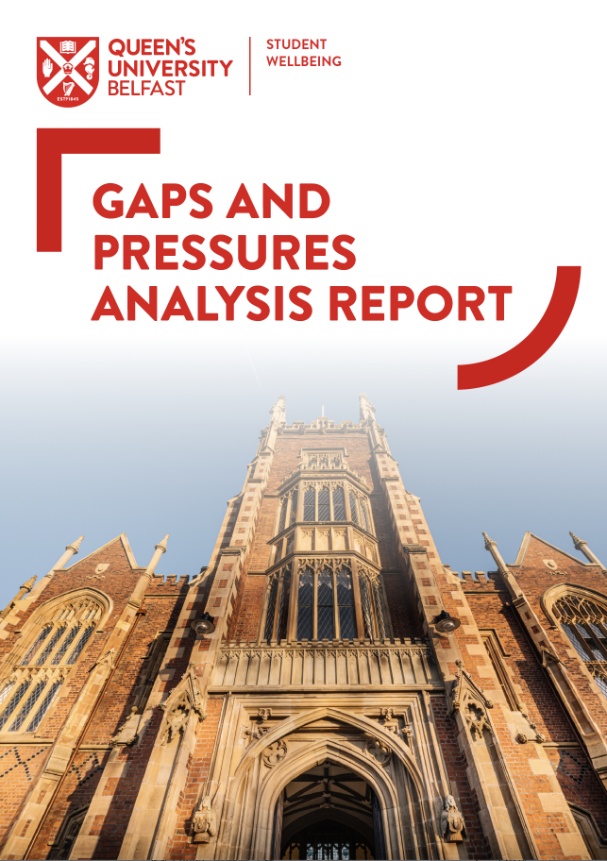Campaigns
Gaps and Pressures
In 2024, the Student Wellbeing and Accessible Learning Service carried out an update to the Gaps & Pressures Analysis with School-based staff who support students to identify strengths and challenges in relation to mental health and wellbeing at the campus. The original report was carried out in 2019. The research complements the findings of the OMNI Students’ Union Survey and the 2023 Staff Survey.
To view the Gaps & Pressures Analysis Document, please click here.
Alternatively, click here for the summary version.

The main findings of the research are as follows:
-
Increasing Mental Health Challenges
There has been a significant rise in students presenting with stress, anxiety, and depression, exacerbated by the pandemic, geopolitical events, and cost-of-living increases. The complexity of these cases often exceeds the university’s capacity to provide support.
- Impact of Assessment and Curriculum
Current assessment methods and academic structures are major stressors for students. The report calls for a re-evaluation of these systems to reduce pressure while maintaining academic integrity.
- Sense of Belonging and Engagement
Despite ongoing efforts to foster a sense of community, many students still seem to struggle with feelings of isolation and disconnection from the university. This issue appears to have been compounded by remote learning, financial pressures, and the Covid 19 pandemic. While community-building initiatives have been implemented, participation rates remain low, largely due to factors such as social anxiety, time constraints, and competing academic demands. To effectively address this, strategies need to focus on integrating community engagement into the academic experience and creating opportunities that are accessible and beneficial to students’ immediate needs.
- Support for Diverse Student Groups
Certain student cohorts, such as international students, postgraduate taught (PGT) students, and students with disabilities, face unique challenges that require tailored support. There is a need for targeted interventions to address their specific needs. That said, staff reported that all students are likely to encounter wellbeing issues at some point during their academic journey, and interventions that improve the universal student experience are to be welcomed.
- Staff Support and Wellbeing
Staff supporting students report feeling more confident in their roles but face increased workload and risk burnout. The emotional toll of handling complex and difficult conversations, combined with insufficient support structures for staff wellbeing, underscores the importance of continued training, and the need for more robust mental health resources for staff.
As part of the #QUBeWell Action Plan, we are launching a Compassionate Communications project to promote empathetic and effective communication across campus. Compassionate Communication is a concept that began in healthcare and has now been embraced by the Higher Education sector. The Higher Education Mental Health Taskforce has also adopted a commitment to compassionate communication as part of its student mental health framework.
The project will offer a practical toolkit with strategies for handling difficult conversations and fostering empathy. By building stronger relationships, we aim to create a more supportive and inclusive campus for everyone at Queen's.
We encourage all staff and students to get involved—whether through feedback, training, or simply practising compassionate communication in everyday interactions.
Brew Monday is a day to promote mental well-being and social connections by encouraging people to connect with others over a cup of tea or coffee.
It was created to combat the idea of "Blue Monday", which is often considered the most depressing day of the year. Teams and services across Queen's are running events to coincide with Brew Monday, and are encouraged to connect with others by holding a coffee morning, getting out for a walk in the Winter sun, or just saying hello to someone new! Bring your keep cup to make sure it's sustainable! Take a look at the great programme of events organised by services across campus - there's something available for everyone!
Brew Monday Programme
